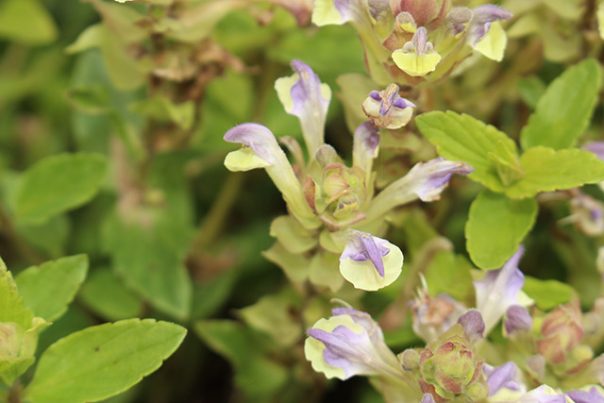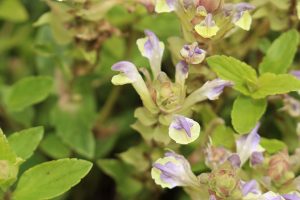
Skullcap – sources, health benefits, nutrients, uses and constituents at NaturalPedia.com
Saturday, July 22, 2017 by Earl Garcia
http://www.naturalpedia.com/skullcap-sources-health-benefits-nutrients-uses-and-constituents-at-naturalpedia-com.html

Skullcap is a beneficial herb that is commonly used in the treatment of various nervous system conditions. According to an article posted on the Herbs List website, skullcap can be found throughout Europe, Asia, Canada, and the United States. The herb comes in many names including quaker bonnet, hoodwort, helmet flower, and blue pimpernel.

List of known nutrients
Skullcap is touted for its many health benefits, largely due in part to its ample supply of bioactive compounds and essential nutrients. An entry posted on Herbpathy.com lists the many important nutrients found in skullcap, such as:
- Baicalin
- Beta-carotene
- Bitter principles
- Calcium
- Flavonoids
- Glycosides
- Iron
- Lignin
- Magnesium
- Manganese
- Phosphorus
- Potassium
- Scutellarein
- Selenium
- Tannins
- Vitamin B2
- Vitamin B3
- Vitamin B12
- Vitamin C
- Vitamin E
- Volatile oils
- Wogonin
- Zinc
Medicinal uses for skullcap
Skullcap is best known for its beneficial effects on the nervous system. Skullcap extracts such as essential oils and infused teas are touted to relieve anxiety and tension. Likewise, the herb is notably rich in phenolic compounds that promote the body’s hormonal balance, and are especially effective in stimulating the release of endorphins. Aside from this, skullcap is known to relax the nervous system and relieve seizures.
The anti-inflammatory properties of skullcap are remarkably efficient in reducing inflammation caused by conditions such as inflammatory bowel disease and arthritis and preventing the onset of Parkinson’s disease and Alzheimer’s disease. The herb is also found to reduce the frequency and severity of seizures in patients. Likewise, skullcap is known to relieve insomnia.
Skullcap is also associated with improved cardiovascular health. The herb is found to effectively reduce blood cholesterol levels and prevent arterial plaque buildup. This, in turn, lowers the odds of developing cardiovascular conditions such as high blood pressure, coronary heart disease, and heart attack as well as atherosclerosis and stroke. Aside from this, skullcap is noted for its potential in diabetes management. The herb is found to promote insulin production in the pancreas. Likewise, skullcap is touted to regulate insulin and blood glucose levels in the body.
The superfood’s potent effects against triglycerides are also known to induce rapid, healthy weight loss. Likewise, the herb’s digestive benefits extend to the liver. Skullcap is associated with increased antioxidant activities in the liver, detoxifying it and fortifying its overall health. In addition, skullcap is touted for its cancer-fighting properties. Skullcap is an excellent source of flavone, a powerful antioxidants that spurs apoptosis. This in turn inhibits tumor growth and prevents harmful cancer cells from spreading.
Moreover, the phenolic compounds and flavones in skullcap are known to increase blood flow in the skin and lower the odds of infections. This facilitates healing from wounds and injuries.
Body systems supported by skullcap
Skullcap is particularly beneficial to the nervous system. Likewise, the herb benefits the cardiovascular and digestive systems. Skullcap also supports the skeletal and immune systems.
Ways to use skullcap
Like any other herb, skullcap can be made into tea, which promotes good sleep. An article on the recipe-curating website Just a Pinch provides instructions on making skullcap tea. Likewise, an entry on LearningHerbs.com features a step-by-step guide in making skullcap tincture.
Where to learn more
- Clinical tests provide strong evidence that spirulina, siberian ginseng and skullcap relieve allergic rhinitis
- 5 Surprising Virus-Killing Recipes You Didn’t Know About
- Science proves these seven herbs provide powerful protection against liver cancer and liver damage of all kinds
- Six Simple Natural Remedies For A Common Headache
- Fight pain naturally with these powerful natural remedies
Summary
Skullcap prevents anxiety and depression, and Alzheimer’s and Parkinson’s disease.
Skullcap keeps cardiovascular diseases, inflammatory pain, and cancer at bay.
Skullcap promotes diabetes management and wards off skin infections.
Skullcap is beneficial to the nervous, cardiovascular, and digestive systems.
Skullcap also supports the skeletal and immune systems.
Sources include:
Tagged Under: Tags: Skullcap





